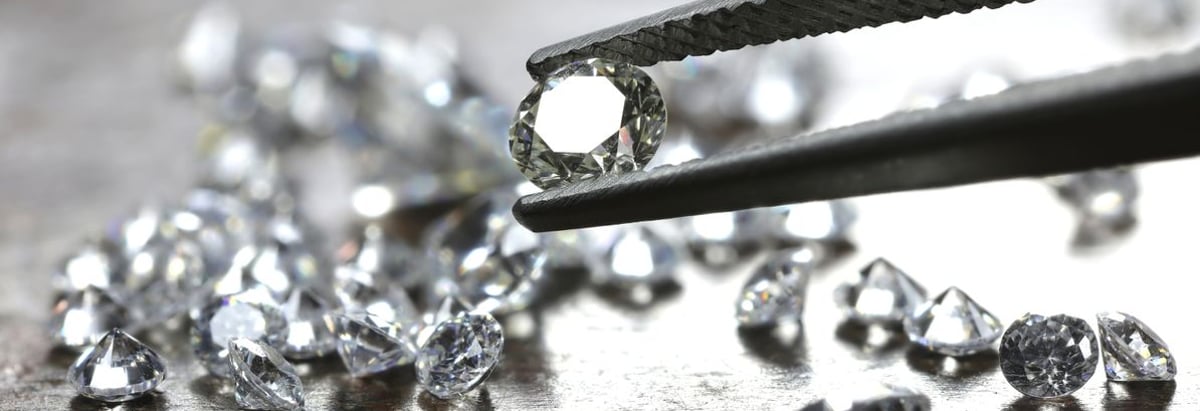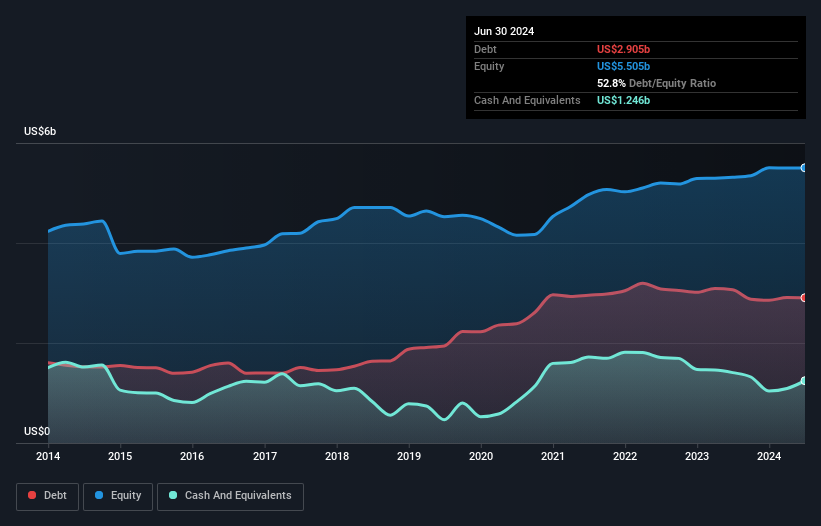
Howard Marks put it nicely when he said that, rather than worrying about share price volatility, 'The possibility of permanent loss is the risk I worry about... and every practical investor I know worries about.' When we think about how risky a company is, we always like to look at its use of debt, since debt overload can lead to ruin. As with many other companies Industrias Peñoles, S.A.B. de C.V. (BMV:PE&OLES) makes use of debt. But the real question is whether this debt is making the company risky.
Why Does Debt Bring Risk?
Debt and other liabilities become risky for a business when it cannot easily fulfill those obligations, either with free cash flow or by raising capital at an attractive price. Ultimately, if the company can't fulfill its legal obligations to repay debt, shareholders could walk away with nothing. However, a more usual (but still expensive) situation is where a company must dilute shareholders at a cheap share price simply to get debt under control. Of course, the upside of debt is that it often represents cheap capital, especially when it replaces dilution in a company with the ability to reinvest at high rates of return. The first thing to do when considering how much debt a business uses is to look at its cash and debt together.
Check out our latest analysis for Industrias Peñoles. de
What Is Industrias Peñoles. de's Net Debt?
The image below, which you can click on for greater detail, shows that Industrias Peñoles. de had debt of US$2.91b at the end of June 2024, a reduction from US$3.06b over a year. However, it does have US$1.25b in cash offsetting this, leading to net debt of about US$1.66b.

A Look At Industrias Peñoles. de's Liabilities
We can see from the most recent balance sheet that Industrias Peñoles. de had liabilities of US$1.23b falling due within a year, and liabilities of US$3.39b due beyond that. On the other hand, it had cash of US$1.25b and US$662.5m worth of receivables due within a year. So it has liabilities totalling US$2.71b more than its cash and near-term receivables, combined.
Industrias Peñoles. de has a market capitalization of US$5.43b, so it could very likely raise cash to ameliorate its balance sheet, if the need arose. However, it is still worthwhile taking a close look at its ability to pay off debt.
We use two main ratios to inform us about debt levels relative to earnings. The first is net debt divided by earnings before interest, tax, depreciation, and amortization (EBITDA), while the second is how many times its earnings before interest and tax (EBIT) covers its interest expense (or its interest cover, for short). The advantage of this approach is that we take into account both the absolute quantum of debt (with net debt to EBITDA) and the actual interest expenses associated with that debt (with its interest cover ratio).
While Industrias Peñoles. de has a quite reasonable net debt to EBITDA multiple of 1.7, its interest cover seems weak, at 2.0. In large part that's it has so much depreciation and amortisation. While companies often boast that these charges are non-cash, most such businesses will therefore require ongoing investment (that is not expensed.) In any case, it's safe to say the company has meaningful debt. Importantly, Industrias Peñoles. de grew its EBIT by 90% over the last twelve months, and that growth will make it easier to handle its debt. There's no doubt that we learn most about debt from the balance sheet. But it is future earnings, more than anything, that will determine Industrias Peñoles. de's ability to maintain a healthy balance sheet going forward. So if you're focused on the future you can check out this free report showing analyst profit forecasts.
Finally, while the tax-man may adore accounting profits, lenders only accept cold hard cash. So it's worth checking how much of that EBIT is backed by free cash flow. Looking at the most recent three years, Industrias Peñoles. de recorded free cash flow of 25% of its EBIT, which is weaker than we'd expect. That weak cash conversion makes it more difficult to handle indebtedness.
Our View
When it comes to the balance sheet, the standout positive for Industrias Peñoles. de was the fact that it seems able to grow its EBIT confidently. However, our other observations weren't so heartening. In particular, interest cover gives us cold feet. When we consider all the factors mentioned above, we do feel a bit cautious about Industrias Peñoles. de's use of debt. While we appreciate debt can enhance returns on equity, we'd suggest that shareholders keep close watch on its debt levels, lest they increase. When analysing debt levels, the balance sheet is the obvious place to start. But ultimately, every company can contain risks that exist outside of the balance sheet. For example Industrias Peñoles. de has 2 warning signs (and 1 which is a bit concerning) we think you should know about.
If you're interested in investing in businesses that can grow profits without the burden of debt, then check out this free list of growing businesses that have net cash on the balance sheet.
New: AI Stock Screener & Alerts
Our new AI Stock Screener scans the market every day to uncover opportunities.
• Dividend Powerhouses (3%+ Yield)
• Undervalued Small Caps with Insider Buying
• High growth Tech and AI Companies
Or build your own from over 50 metrics.
Have feedback on this article? Concerned about the content? Get in touch with us directly. Alternatively, email editorial-team (at) simplywallst.com.
This article by Simply Wall St is general in nature. We provide commentary based on historical data and analyst forecasts only using an unbiased methodology and our articles are not intended to be financial advice. It does not constitute a recommendation to buy or sell any stock, and does not take account of your objectives, or your financial situation. We aim to bring you long-term focused analysis driven by fundamental data. Note that our analysis may not factor in the latest price-sensitive company announcements or qualitative material. Simply Wall St has no position in any stocks mentioned.
About BMV:PE&OLES *
Industrias Peñoles. de
Engages in the exploration, extraction, and sale of mineral concentrates and ores in Mexico, Europe, Asia, North America, South America, and internationally.
Excellent balance sheet and slightly overvalued.
Similar Companies
Market Insights
Community Narratives




